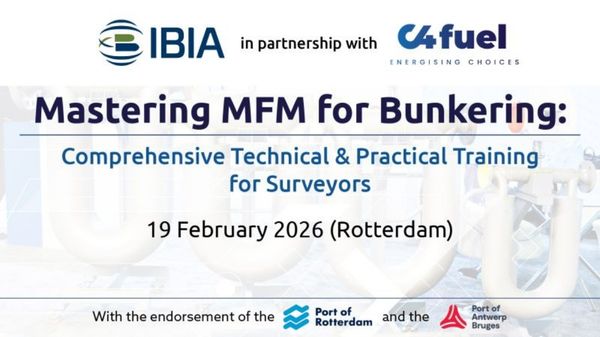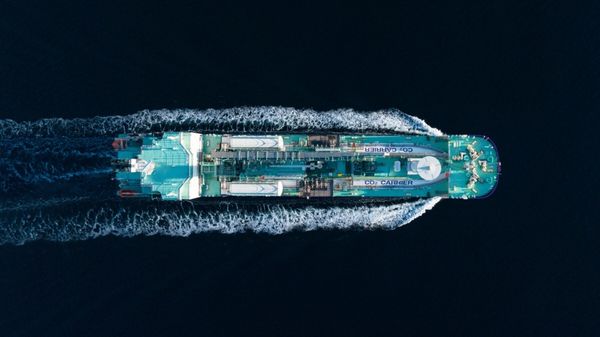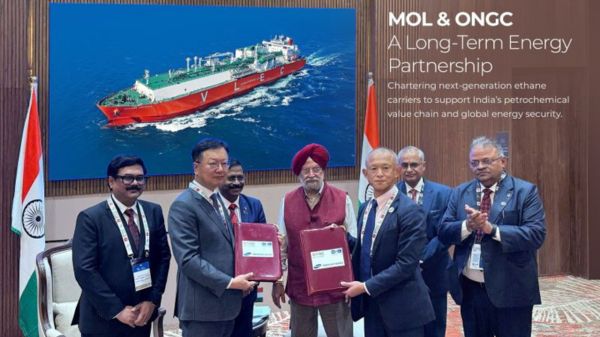
The 79th session of the IMO's Marine Environment Protection Committee (MEPC) is meeting this week to tackle a number of bunker-related issues.
ISWG-GHG 13: A key topic at MEPC 79 as regards the reduction of GHG emissions from ships will be discussions related to the report of the 13th sessions of the Intersessional Working Group on Reduction of GHG Emissions from Ships (ISWG-GHG 13), which met last week and covered both the revision of the Initial IMO GHG Strategy (towards adopting an updated Strategy in mid-2023 at MEPC 80) and the implementation of mid-term measures to incentivize the move away from fossil fuels to low- and zero-carbon fuels.
Life cycle GHG/carbon intensity guidelines: The MEPC is expected to consider the development of the draft guidelines on life cycle GHG intensity of marine fuels. At ISWG-GHG 11 in March, the working group agreed that the technical lifecycle guidelines would cover the lifecycle assessment (LCA) method, which refers to the assessment of GHG emissions from fuel production to the ship (well-to-wake).
IMO DCS: MEPC 79 will discuss the revision of the IMO Data Collection System (IMO DCS), which collects and reports fuel oil consumption data from ships.
EEDI: The MEPC will consider a proposed amendment to the 2018 Guidelines on the method of calculation of the Attained Energy Efficiency Design Index (EEDI) for new ships; and the report of the Correspondence Group on the Possible Introduction of EEDI Phase 4.
Flash point adoption: The MEPC is expected to adopt draft amendments to appendix V of MARPOL Annex VI, to include the flash point of fuel oil or a statement that the flash point has been measured at or above 70ºC as mandatory information in the bunker delivery note (BDN).
Mediterranean ECA adoption: MEPC 79 is set to adopt amendments to designate the Mediterranean Sea as an Emission Control Area (ECA) for sulphur oxides and particulate matter, under MARPOL Annex VI. The fuel sulphur limit for ships will be 0.1%.
Air pollution prevention: The MEPC is to consider documents which have been submitted in relation to a possible bunker fuel licensing system; the impact of the use of biofuels on NOx emissions; and exhaust gas cleaning systems (EGCS).

|
Maersk takes delivery of first methanol-capable vessel in 9,000-teu series
Tangier Maersk is the first of six mid-size container ships with methanol-capable dual-fuel engines. |
|
|
|
||

|
IBIA to run surveyor training course for mass flow meter-equipped bunkering in Rotterdam
One-day course scheduled for 19 February aims to prepare professionals for MFM-equipped bunkering operations. |
|
|
|
||

|
MOL secures two 12,000-cbm CO2 carriers for Northern Lights expansion
Japanese shipowner to deliver vessels in 2028 for cross-border carbon transport and storage project. |
|
|
|
||

|
MOL and ONGC sign 15-year charter deal for two ethane carriers
Japanese shipowner expands fleet to 16 vessels with newbuildings scheduled for delivery in 2028. |
|
|
|
||

|
Dual-fuel container ship and vehicle carrier fleet reaches 400 vessels
World Shipping Council reports 83% increase in operational dual-fuel vessels during 2025. |
|
|
|
||

|
Lloyd’s Register publishes first guidance notes for onboard hydrogen generation systems
Classification society addresses regulatory gap as shipowners explore producing hydrogen from alternative fuels onboard. |
|
|
|
||

|
Rotterdam bunker industry faces upheaval as new regulations drive up costs and shift volumes
Red III compliance costs and a mass flow meter mandate are creating operational challenges across the ARA region. |
|
|
|
||

|
VPS appoints Neil Chapman as managing director for the Americas
Maritime services company names industry veteran to lead regional operations and client partnerships. |
|
|
|
||

|
Maritime industry shifts towards LNG as alternative fuel enthusiasm stalls
Geopolitical concerns drive shipping leaders to prioritise established fuels over newer alternatives, survey finds. |
|
|
|
||

|
OceanScore reaches $5m annual recurring revenue as emissions compliance demand grows
Hamburg-based firm supports compliance workflows for more than 2,500 vessels as regulations enter operational phases. |
|
|
|
||
| Med ECA approved; zero 2050 target gains traction [News & Insights] |
| 25 years of air pollution regulations [News & Insights] |